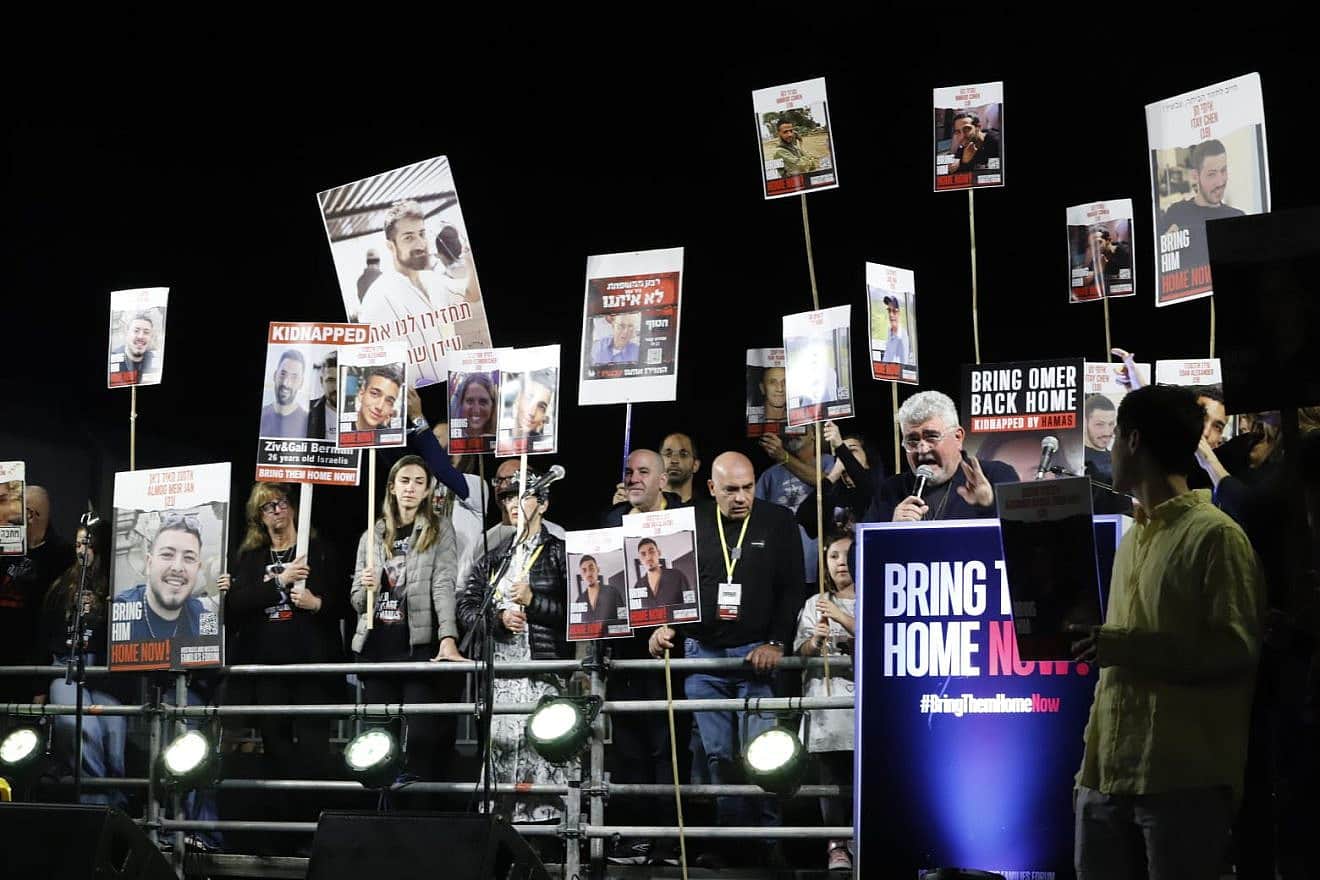Hamas rejected an Israeli proposal for a two-month ceasefire in exchange for the staged release of the 136 remaining hostages being held in the Gaza Strip, a senior Egyptian official told the Associated Press on Tuesday.
The official said Hamas leaders also rejected a demand to leave Gaza and are insisting that the Israel Defense Forces withdraw from the coastal enclave and allow the terrorist organization to regroup.
Israel transferred the proposal to Hamas through Qatari and Egyptian intermediaries, according to an Axios report on Monday.
The report, citing two Israeli officials, said that Israel’s War Cabinet approved the far-reaching parameters of the proposal 10 days ago.
In the first phase of the deal, civilian women, men over the age of 60 and hostages in critical condition would be freed, according to Axios. The subsequent phases would see the release of female soldiers and male civilians under the age of 60, and then male IDF soldiers and the bodies of hostages who have been killed.
In return, Israel and Hamas would agree in advance on how many Palestinian security prisoners would be exchanged for each Israeli hostage in every stage. Parallel negotiations would then take place to determine which prisoners are released.
The agreement also calls for the redeployment of some IDF soldiers from major population centers in Gaza and allowing the gradual return of Palestinians to Gaza City and the northern Strip.
Meanwhile, CNN reported on Monday that Israel has also proposed that senior Hamas leaders leave Gaza as part of the agreement. The prospect has been discussed at least twice recently; last month when Mossad Director David Barnea met in Warsaw with CIA Director William Burns and Qatari Prime Minister and Foreign Minister Mohammed bin Abdulrahman Al Thani, and then again during U.S. Secretary of State Antony Blinken’s visit to Doha this month.
Earlier on Monday, Israeli Prime Minister Benjamin Netanyahu said that Hamas had failed to offer any serious proposal for a deal to free the captives.
“Contrary to what is [being] said, there is no genuine proposal by Hamas. This is not true,” Netanyahu told representatives of the hostages’ families during a meeting. “On the other hand, there is our initiative, which I will not detail.”
On Sunday, the prime minister confirmed that Hamas during negotiations had demanded that the Israel Defense Forces retreat from Gaza and end its war against the terrorist group, in addition to “the release of all the Nukhba [terrorist commando] murderers and rapists, and leaving Hamas intact.
He went on to say, “If we agree to this, our soldiers will have fallen in vain. If we agree to this, we will not be able to guarantee the security of our citizens. We will not be able to return the evacuees safely to their homes, and the next October 7 will only be a matter of time.”
Monday’s Axios report said that Jerusalem had not agreed to end the fighting, rather that its offensive would resume at an undefined time, at a lower intensity.
U.S. National Security Council spokesman John Kirby told reporters on Monday that President Joe Biden supports a pause in the conflict that would enable the release of hostages and the entry of more humanitarian aid to Gaza.
Brett McGurk, the U.S. National Security Council’s coordinator for the Middle East and North Africa, touched down in Egypt on Sunday for negotiations on releasing the hostages. McGurk was then scheduled to fly to Doha to meet with Sheikh Mohammed, the Gulf country’s prime minister and foreign minister.
Also on Monday, Netanyahu and visiting French Defense Minister Sébastien Lecornu discussed a Paris-brokered deal under which medicines destined for Israeli hostages, but most of which ended up serving Hamas terrorists, entered the Gaza Strip late last week.
Netanyahu told Lecornu that he is still awaiting evidence that any of the medicines reached the captives, and emphasized that the implementation of the agreement must be monitored.


























